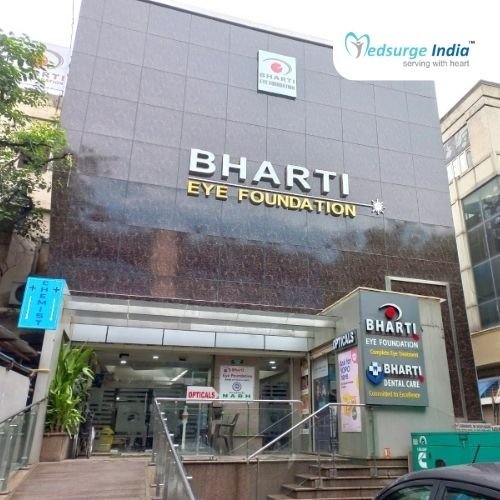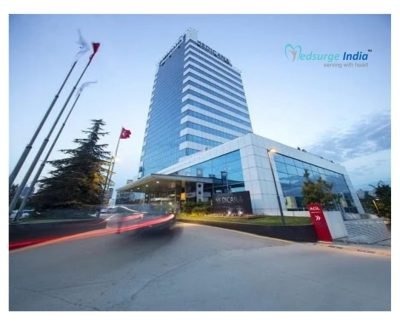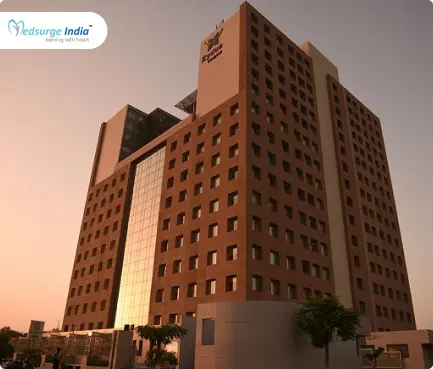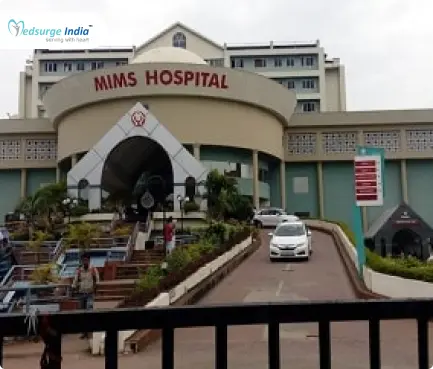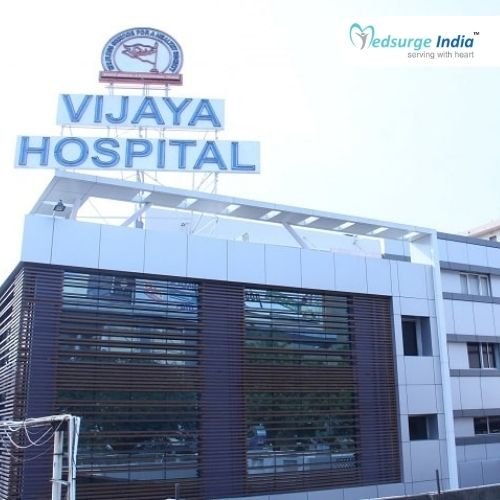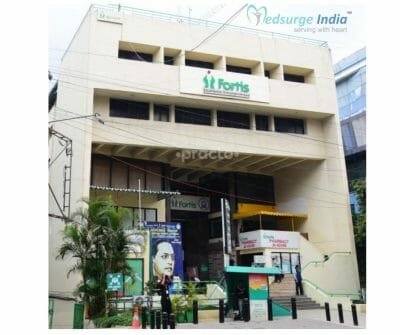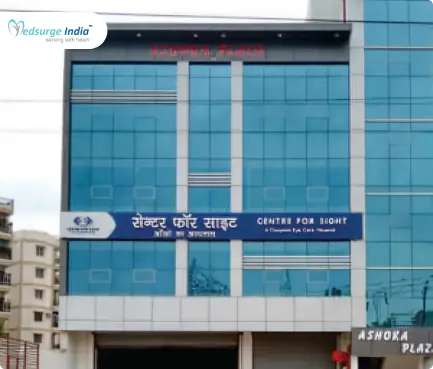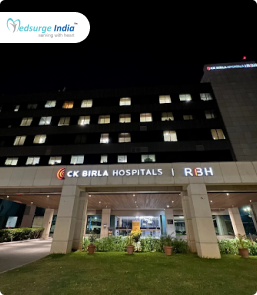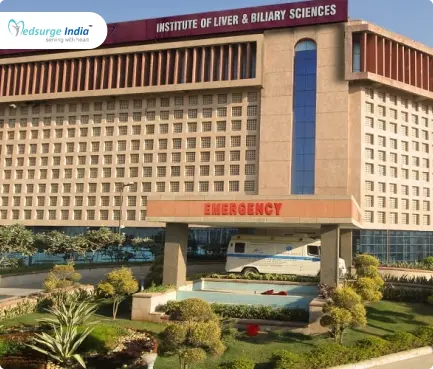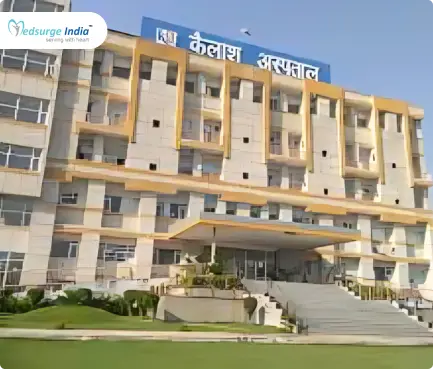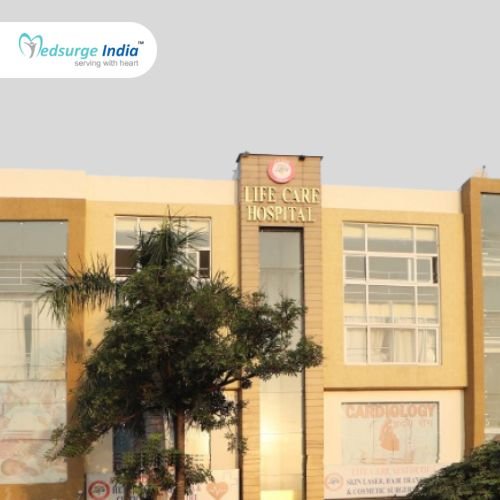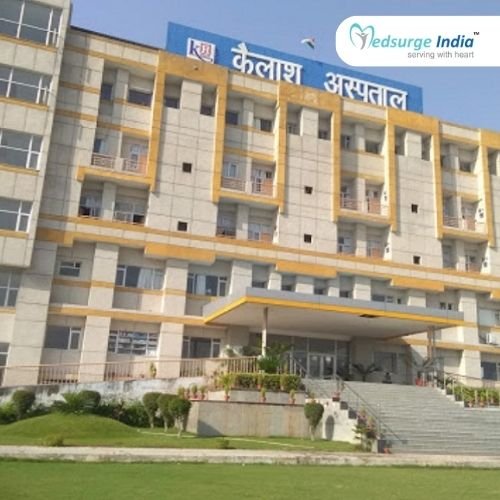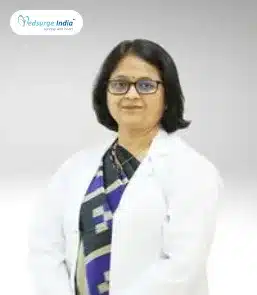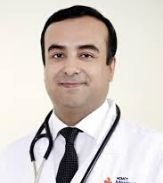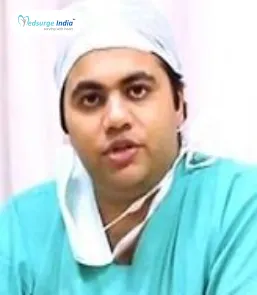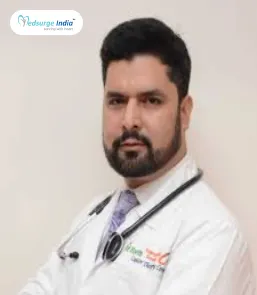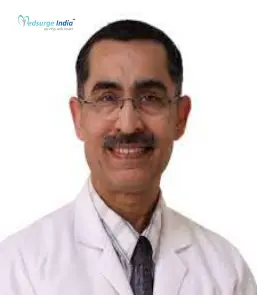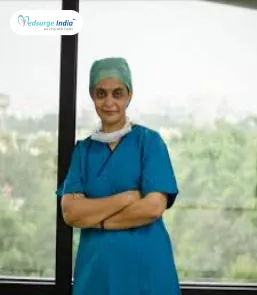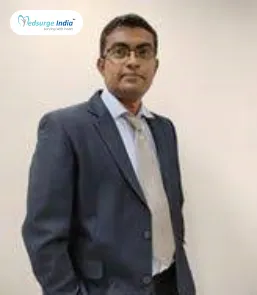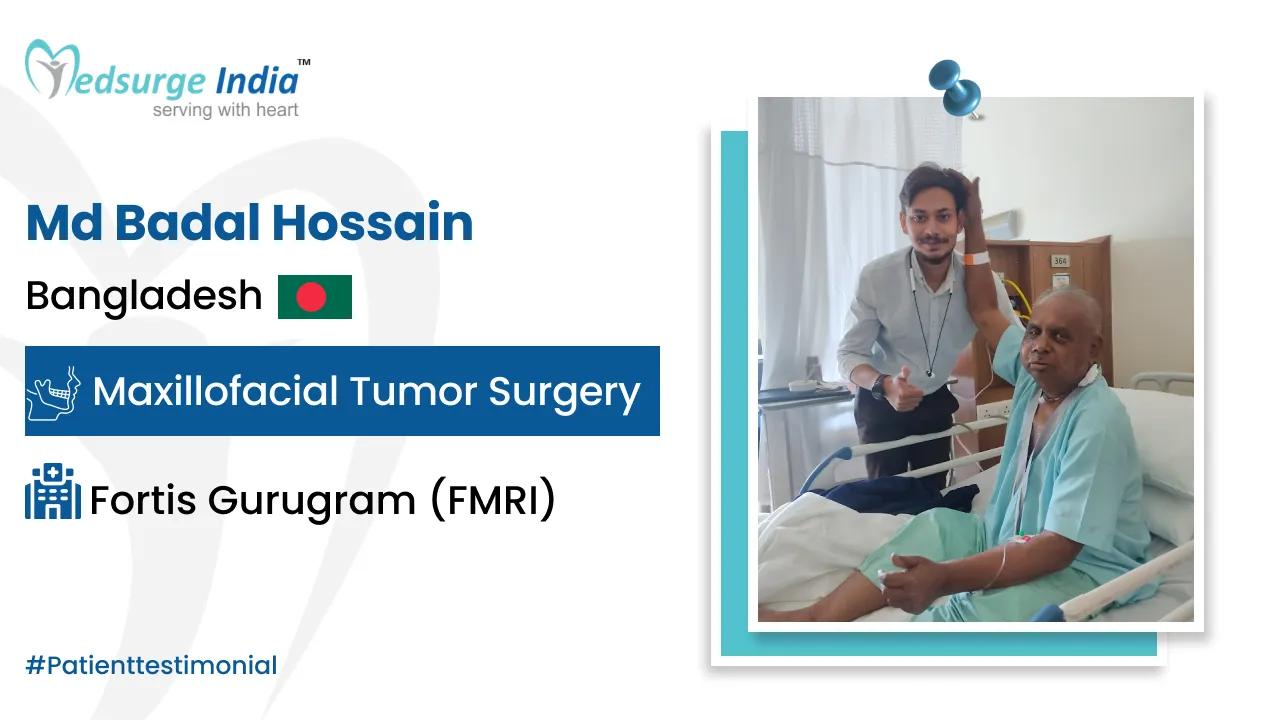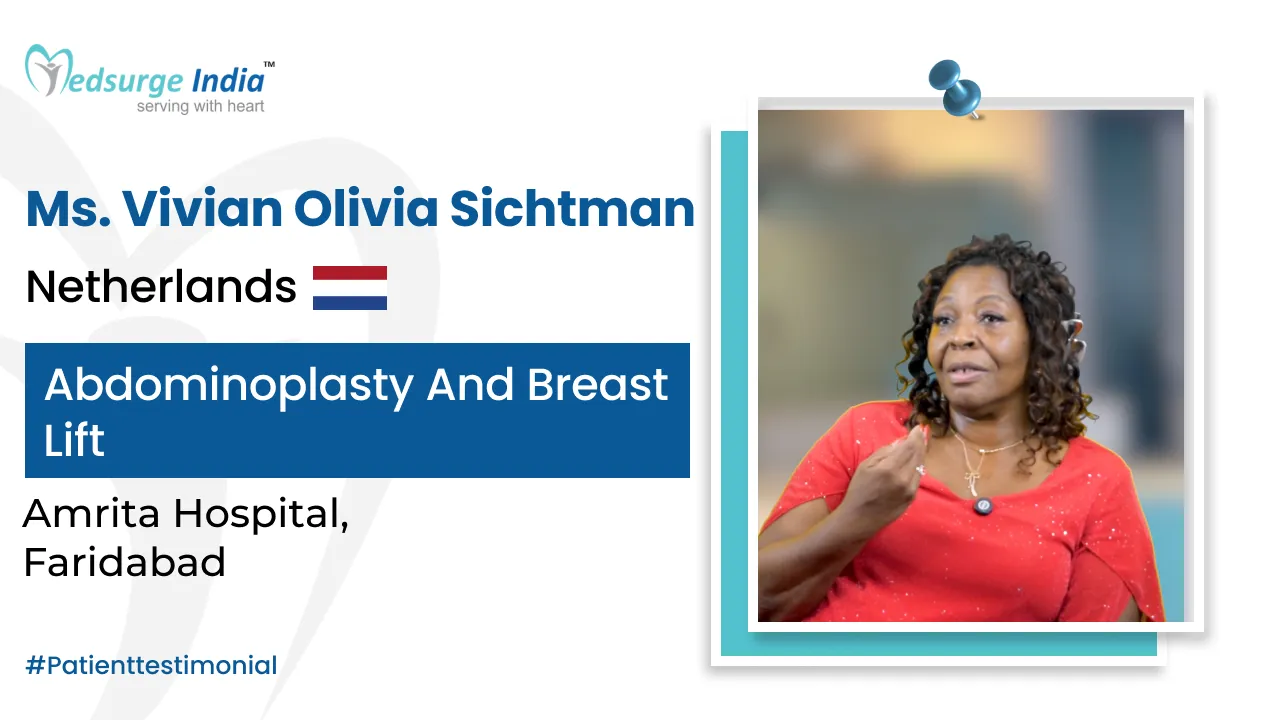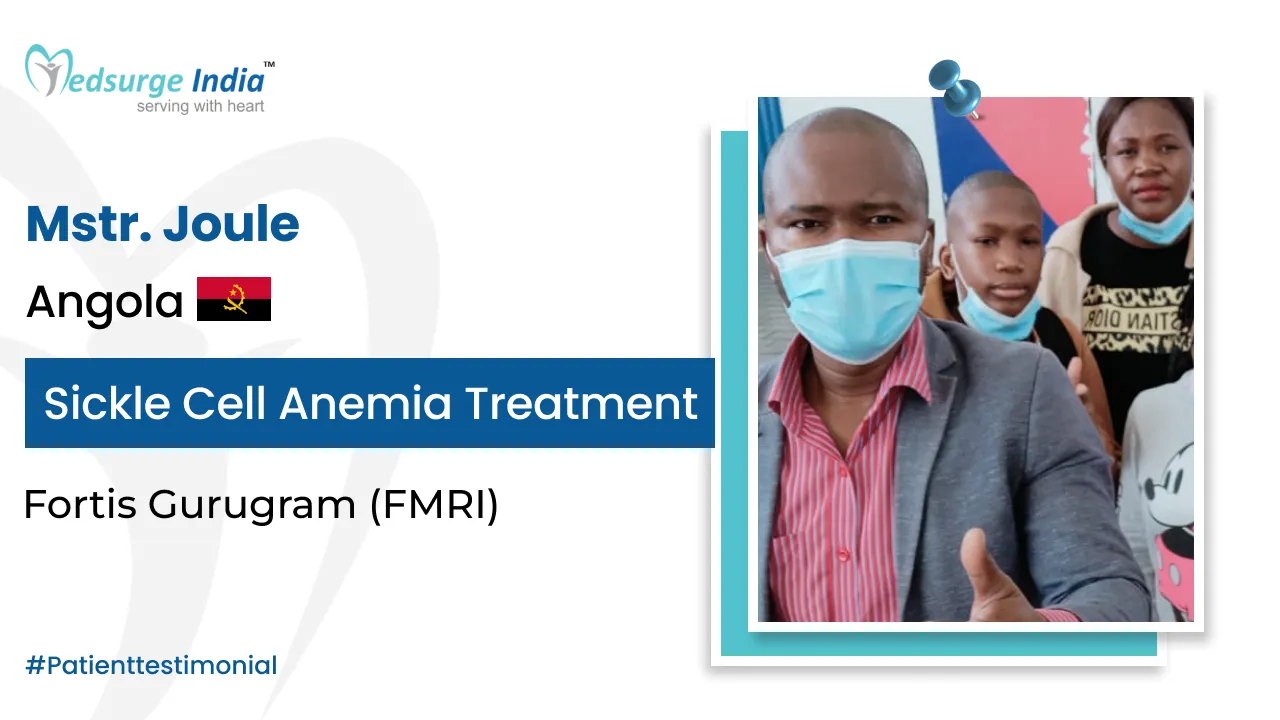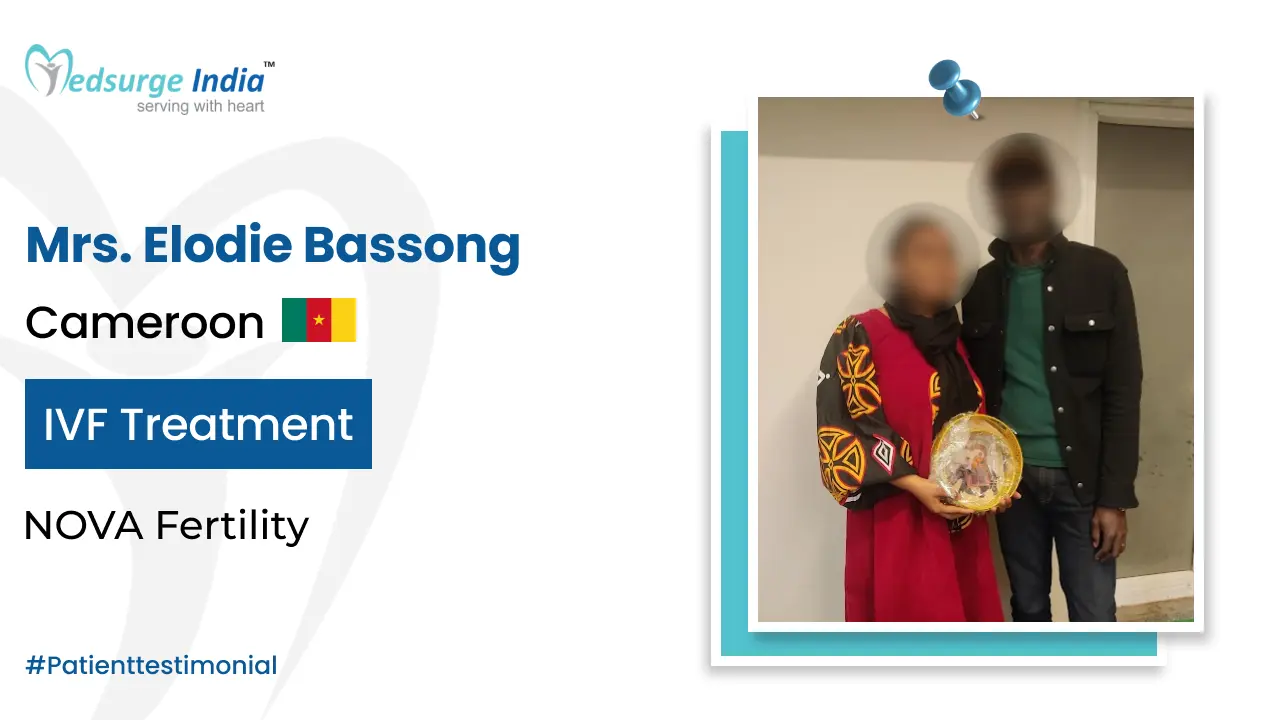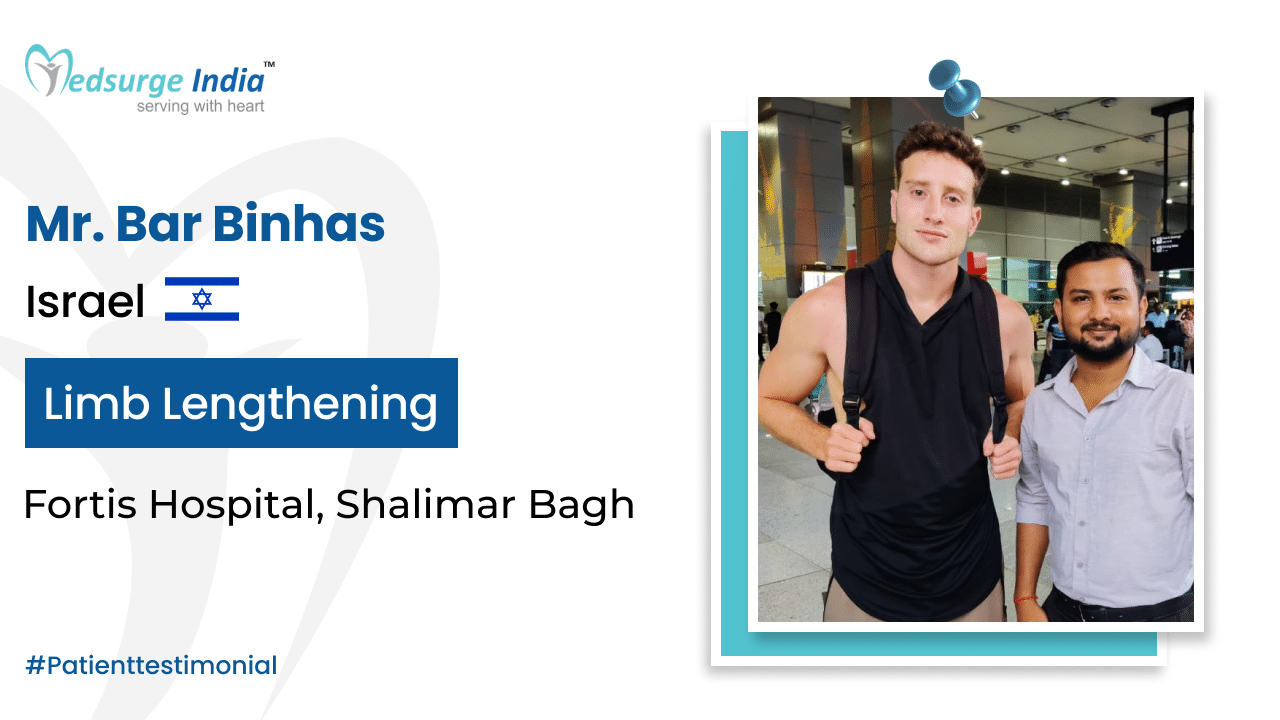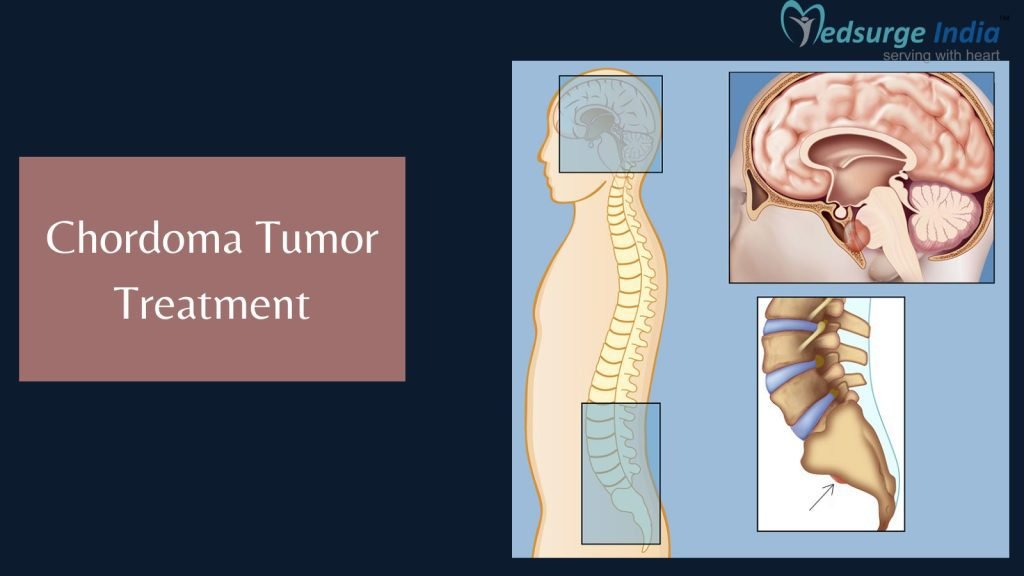
Chordoma is a rare type of bone cancer that most commonly affects the spine or skull bones. It usually appears where the skull sits atop the spine (skull base) or at the bottom of the spine (spine base) (sacrum). Chordoma develops in cells that were formerly part of a group of cells in the developing embryo that later become the spine’s discs. The majority of these cells die before or shortly after you are born. However, a few of these cells may persist and, in rare cases, become malignant. Chordoma treatment in India is determined by cancer’s size and location, as well as if it has spread to nerves or other tissues. Surgery, radiation therapy, radiosurgery, and targeted therapy are all possible options.
The chordoma treatment cost in India depends upon multiple factors like duration of stay in the hospital, patient’s overall health, and location of the hospital.
What Is Chordoma?
Chordomas are malignant (cancerous) tumors of the spine and skull that are unusual. Every year, around one person in a million, is affected by these malignancies. Chordoma makes up 1-4% of all primary bone tumors.
Chordomas are known for their sluggish growth. They are frequently found in the anterior (front) section of the spine or at the base of the skull. They can happen anywhere along the spine.
The sacrum (base of the spine), the tailbone (coccyx), and the point where the spine enters the skull are all common places (skull base). The clivus is a bone located behind the back of the throat but in front of the brainstem. Chordomas there are called clival chordomas.
Adults between the ages of 40 and 70 are the most common victims of these malignancies. Children account for a modest percentage (about 5%). Chordomomas affect men twice as often as they do women.
The lungs, liver, bones, and lymph nodes are the most common places chordomas move to other regions of the body (metastasize). Metastasis usually only occurs when the primary tumor has advanced and is rarely reported at the time of initial diagnosis.
What Are the Symptoms of Chordoma?
Tumors of the spinal cord can generate a variety of signs and symptoms, especially as they progress. Tumors in your spine may affect your spinal cord, nerve roots, blood vessels, or bones. The following are possible signs and symptoms of chordoma:
- Headaches
- Double vision
- Weakness of the nerves or muscles in the back, arms, or legs
- Pain
- Nosebleeds
- A running nose
- Problems with the bowels or bladder
- Difficulty in walking, sometimes leading to fall
- Pain at the tumor spot due to the growth of the tumor
- Feeling less sensitive to pain, heat, or cold
- Loss of sensation
Chordoma tumors commonly cause back pain as an early symptom. Pain can also migrate to your hips, legs, feet, or arms, and it can get worse over time despite treatment.
The pace of progression of spinal tumors varies depending on the type of tumor.
What Are the Causes of Chordoma Tumor?
There is evidence that inheriting an altered gene from a parent can increase a person’s risk of causing chordoma. Other cases of chordoma, on the other hand, occur in individuals who have no family history of the disease.
There is evidence that children with the genetic disease tuberous sclerosis complex are more likely to develop chordomas.
Chordoma tumors can compress spinal nerves, causing loss of movement or sensation below the tumor’s position. Changes in bowel and bladder function can occur as a result of this. Nerve injury may be permanent.
It may be able to avoid further loss of function and recover nerve function if diagnosed early and treated aggressively. Depending on its location, a tumor that presses against the spinal cord itself may be life-threatening.
Chordoma Tumor Treatment Cost In India
On average, Chordoma Tumor Treatment Cost in India starts from USD 70. The cost of the treatment may vary depending on the type of hospital and the cities you choose for your treatment.
Estimated prices depending on different cities in India
| Cities | Starting Price |
| Delhi | USD 70 |
| Gurgaon | USD 70 |
| Noida | USD 70 |
| Mumbai | USD 75 |
| Hyderabad | USD 72 |
| Chennai | USD 70 |
| Kolkata | USD 70 |
| Bangalore | USD 75 |
Note: Do remember that the pricing and the treatment for Chordoma Tumor Treatment cost in India will vary depending on the patient’s choice and other various factors.
Factors That Can Affect Chordoma Tumor Treatment Cost in India
The following here are some variables that can affect Chordoma Tumor Treatment Cost in India:
- Medication costs.
- Duration of treatment.
- Geographical location.
- Hospitalization expenses.
- Government policies and subsidies.
- Medical tourism packages.
- Hospital reputation and infrastructure.
- The expertise and experience of medical professionals.
- The type and frequency of diagnostic procedures.
- The choice of treatment modality.
Furthermore, even the standard and grade of medical care and amenities are comparable to those of the most prestigious healthcare facilities in the world, even when the expense of lodging, meals, and transportation is taken out. Also, under the direction of the most skilled physicians, Medsurge India provides patients with the lowest Chordoma Tumor Treatment Cost in India.
How the Diagnosis of Chordoma Tumor is done?
A lump may be observed occasionally, especially towards the base of the spine. Lesions can also be seen on computed tomography (CT) and magnetic resonance imaging (MRI) scans in some situations.
To diagnose a chordoma and distinguish it from other forms of tumors, a biopsy will be performed. The chordoma can be classified into three kinds according to how the tissue is studied under a microscope:
- Conventional Chordoma (or classic)
- Chondroid Chordoma
- Dedifferentiated Chordoma (also called sarcomatous)
The most prevalent chordomas are conventional chordomas. They are slow-growing but cancerous. The growth of a chondroid chordoma is considerably slower than that of a normal chordoma. The majority of them are situated at the base of the skull. Chordomas that are dedifferentiated grow swiftly.
Chordomas are recognized by two types of markers:
- Cytokeratins
- Brachyury
because radiological examination can be ambiguous. The brachyury protein is also seen in masses that have grown from the notochord, an embryo’s support structure. CT and MRI scans are also used to develop strategies for chordoma treatment in India.
Get Free Cost Estimation
Procedure
What Are the Treatment Options Available for Chordoma Tumors?
The goal of chordoma tumor treatment in India is to completely remove the tumor, although this can be difficult due to the danger of lasting damage to the spinal cord and surrounding nerves. Doctors must also consider your age and overall health. In choosing a treatment plan, the type of tumor and whether it comes from the structures of the spine or spinal canal or has spread to your spine from elsewhere in your body must also be examined.
The following are some of the options for chordoma treatment in India:
Surgery: This is frequently the treatment of choice for tumors that can be removed without causing damage to the spinal cord or nerves. Neurosurgeons may now reach tumors that were previously thought to be inaccessible because of newer techniques and devices. Microsurgery’s high-powered microscopes make it easier to identify tumors from healthy tissue.
Radiation Therapy: This could be used to remove tumor remains that remain after surgery, to treat inoperable tumors, or to treat tumors that are too dangerous to operate on.
Chemotherapy: Chemotherapy is a common cancer treatment that employs drugs to kill cancer cells or stop them from developing. Your doctor can assess whether chemotherapy, alone or in conjunction with radiation therapy, would be beneficial to you.
Proton Beam Therapy in India: Many types of tumors, including those of the brain, head and neck, central nervous system, lung, spine, and gastrointestinal system, can benefit from proton treatment. Proton therapy is frequently used to treat solid tumors in children because protons can be accurately regulated, resulting in less radiation to normal tissues, reducing the risk of significant consequences and subsequent tumors
Chordoma and Chondrosarcomas are tumors that approach or are positioned at the base of the skull and can be treated with proton beam therapy.
Suggestion
chondroid chordomas have a better prognosis than those who are diagnosed with conventional or classic chordomas. Dedifferentiated chordomas grow more quickly and are more likely to spread (metastasize). The prognosis for dedifferentiated chordomas is the most severe.
Metastatic cancer is more common in younger patients. Metastasis is associated with recurrence. The tumor’s location and the site of metastasis have an impact on survival rates.
The Most Important Frequently Asked Questions
Q: Is It Possible to Cure Chordoma Cancer?
A: In most situations, the greatest hope of long-term management is aggressive surgical excision followed by radiation therapy to the remaining tumor. Complete excision of chordomas is often impossible due to their invasion of the bone.
Q: Is It Possible to Get Rid of Chordoma?
A: The majority of clival chordomas can be removed utilizing an endoscopic endonasal technique through the nose. Multiple keyhole surgeries, including the retrosigmoid and eyebrow craniotomy techniques, are sometimes required for these tumors.
Q: Is It Painful to Touch Chordoma?
A: Symptoms of a lumbar or sacral chordoma include Backache or pain in the tailbone. Numbness and/or weakness in the legs. Control of the bladder and bowels is lost. A tender-to-the-touch lump on the low back or tailbone.
Q: Where Is Chordoma Likely to Spread?
A: The lungs, liver, bones, and lymph nodes are the most common places chordomas move to other regions of the body (metastasize). Metastasis usually happens after the primary tumor has progressed, therefore it is infrequently reported at the time of diagnosis.
Q: How Long Does It Take to Recuperate from a Spinal Tumor Removal?
A: After surgery to remove a spinal tumor, patients usually stay in the hospital for 5 to 10 days. Physical therapy is always a part of the healing process. The time it takes to recuperate varies greatly, ranging from three months to a year.
Top Hospitals for Chordoma Tumor Treatment in India
Top Doctors for Oncology and Oncosurgery
Dr. Mou Roy
Senior Consultant
Experience: 27+ years of experience
BALCO Medical Centre, Raipur
Raipur, India
Dr. Peush Bajpai
Consultant , MBBS, MD, DM
Experience: 17 years of experience
Manipal Hospitals Dwarka, Delhi
Delhi, India
Dr. Siddharth Turkar
Experience: 11+ years of experience
NH MMI Narayana Superspeciality Hospital, Lalpur, Raipur
Raipur, India
Dr. Amit Kumar Jaiswal
Consultant
Experience: 21 years of experience
Ganga Care Hospital Limited, Nagpur
Nagpur, India
Dr. Manthan Rameshchandra Merja
Experience: 10+ years of experience
Narayana Multispeciality Hospital, Rakhial, Ahmedabad
Ahmedabad, India
Dr. S K Bala
Consultant
Experience: 10 years of experience
HCG EKO Cancer Centre, Kolkata
Kolkata, India
Dr. Sewanti Limaye
Consultant , MBBS, MD, MS, Fellowship
Experience: 17 years of experience
Sir H. N. Reliance Foundation Hospital and Research Centre
Mumbai India
Dr. Surender Kumar Dabas
Head of Department
Experience: 20 years of experience
BLK Super Speciality Hospital, New Delhi
New Delhi, India

